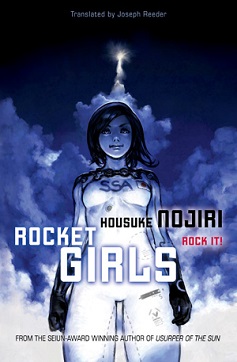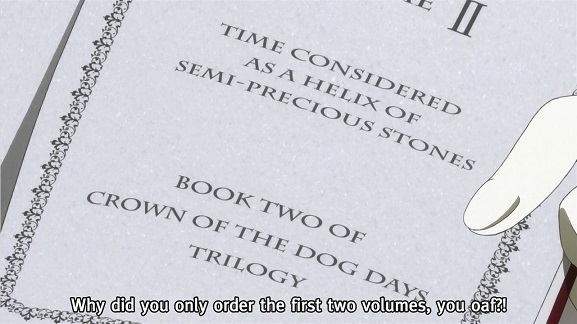
Rocket Girls/Rocket Girls: The Last Planet
Hōsuke Nojiri
214/250 pages
published in 1995/1996
Morita Yukari came to the Solomons Islands to look for her long lost father, who disappeared on his honeymoon seventeen years ago, leaving behind her pregnant mother when he went out on a walk to look at the moon. She has little hope of finding him, but feels she has to try after hearing rumours of a Japanese enclave on one of the islands, which led her to Maltide. What she doesn’t know is that the enclave is the Solomon Space Association which is attempting to create a manned rocket capability but having little success with their new booster which keeps going kaboom. So they decide to go back to their older design, but that has less weight lifting capacity so the race is on to shave off as much weight as possible, including from the astronaut. Who promptly flees. Various things happens, Yukari gets caught up in it and when the SSA director sees her, he has the bright idea to turn her into an astronaut — no weight loss needed for a high school girl weighting only fifty kilos.
